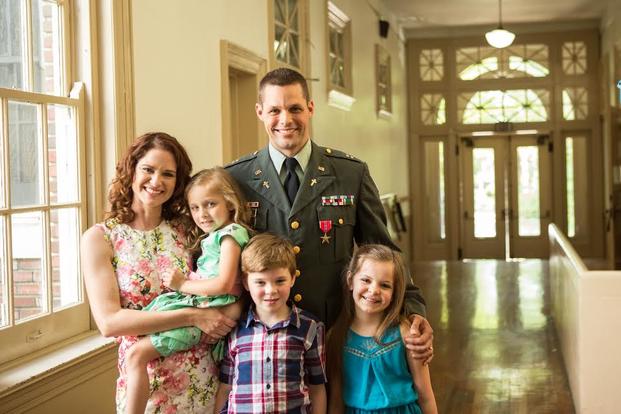Army Chaplain Darren Turner returned from his deployment to Iraq to find a whole new battle to fight on the home front to reconnect in his marriage and with his family.
Just out of seminary and commissioned in the Army, Darren almost immediately went to war, leaving his wife, Heather, and children behind. In Iraq, Darren bore responsibility for helping members of his battalion stay in touch with family and keep relationships strong. But over time their own relationship suffered, and when he came home himself, Darren and Heather were shocked to find the invisible, emotional wounds of war tearing their once strong relationship apart -- a reality many military couples face after a deployment.
The Turners' true story is now the subject of a stirring new film, 'Indivisible,' which premiered nationwide Oct. 26. It vividly brings to life the challenges, and triumphs, I've seen resilient military families experience over my years counseling military couples.
We all want and need love, and we all want to receive love in the same way we give it. However, we need to learn our partner's "love language" and speak it.
Of course, military families face special circumstances such as long separation. Those at home live with fear for safety of the military member. Those serving live with concern over leaving family behind.
Over decades of helping couples learn to love each other better, I've learned the five love languages still apply for those who serve: words of affirmation, acts of service, receiving gifts, quality time and physical touch.
For any relationship, it's vital to know your partner's love language and yours as well. Why? Try to imagine that you speak English and no other language. Your spouse speaks Chinese and no other language. You might have the most awesome words of love and affection to tell him or her. But no matter how hard you try to express that love in English, if your spouse understands only Chinese, you will never understand how to love one another.
If your spouse understands love by hearing words of affirmation and you show love by doing acts of service, all your hard work to show that love . . . doesn't hit the target.
Learning to express love effectively takes work over time. Adding to that the military lifestyle where long separations over long distances with limited communication can be the norm is challenging, but it can be done.
Here are a few examples of how.
If you're a military member who needs quality time to feel loved, what do you do in time of separation?
One family I know made sure to "bank" a lot of quality time together before the deployment. Once deployed, they kept that need at the forefront of their minds, and when they could talk by phone or online, they did all they could to make that time, quality time.
One couple had a daughter who understood love by receiving gifts. Before her father's deployment, he and his wife bought a large number of small presents for their little girl--nothing extravagant, but each thoughtful and intentional. The dad penned a personal note with each gift. The girl regularly received the gifts and notes while her dad was away as regular reminders that she was loved in the love language she understood!
A spouse on the home front gave and received love through Words of Affirmation. Her military spouse husband traveled often in his service. They spoke daily, and he was intentional in affirming the job she was doing meeting the family's needs on her own, affirming her as a wife, affirming her in her work.
Once you identify and learn to speak your spouse's primary love language, I believe you will have discovered the key to a long-lasting, loving marriage. These languages can be spoken even when you are separated by deployment.
You must stay alert to signs that your spouse might be crying out for love. You need to gauge the possibility that his or her emotional love tank could be running on "empty."
And this goes doubly so for military members.
At the heart of humankind's existence is the desire to be intimate and to be loved by another. If we want our spouses to feel the love we are trying to communicate, we must express it in his or her primary love language, whether in uniform or out.
Gary Chapman, Ph.D., is the author of the best-selling The 5 Love Languages® series which has sold more than 10 million copies worldwide and has been translated into 50 languages, and includes a Military Edition.
Indivisible, from Reserve Entertainment, Provident Films and Graceworks Pictures, is in theaters nationwide now. IndivisibleMovie.com.
-- The opinions expressed in this op-ed are those of the author and do not necessarily reflect the views of Military.com. If you would like to submit your own commentary, please send your article to opinions@military.com for consideration.














